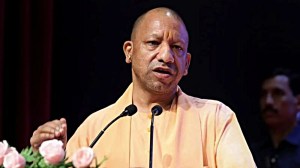Japanese PM’s visit signals lifting of N-cloud over ties
JULY 29: The Pokharan wheel seems to have turned full circle. With the visit of Japanese Prime Minister Yoshiro Mori to India from August ...

JULY 29: The Pokharan wheel seems to have turned full circle. With the visit of Japanese Prime Minister Yoshiro Mori to India from August 21-25, the last of the big nations will be signalling that they have come to terms with a nuclear India.
Even though Tokyo has refrained from lifting its economic sanctions imposed after the tests and amounting to one billion yen annually, diplomatic negotiations before the Mori visit could yield face-saving measures on both sides.
Clearly, however, Tokyo’s post-Pokharan shrillness has given way to a far greater, if more subdued, realism. And though Japan continues to directly link a CTBT signature with the lifting of sanctions, the issue is no longer a precondition to the development of a fuller relationship.
“Our official position is that the economic measures will be reviewed when India (and Pakistan) signs the CTBT, and we wait anxiously for discussions (on this) to start in the Lok Sabha,” Japan’s ambassador to India Hiroshi Hirabayashi said here today.
Insisting that the “CTBT will not be at the centre of discussions with New Delhi, but only one of the issues,” Tokyo, he added, had been reassured by a number of Indian leaders that the government was in the process of evolving a consensus and that consensus didn’t necessarily mean consent.
Mori’s visit to India comes as part of a South Asian package to Bangladesh, Pakistan and Nepal, indicating that Tokyo hasn’t completely given up on the idea of parity in the sub-continent.
“On a dialogue between India and Pakistan as well as on nuclear issues, there shouldn’t be any difference in message from Japan to both India and Pakistan,” Hirabayashi said.
Clearly, though, the realisation that the rest of the world, especially its chief ally the US, is willing to deal with India has toned down Japan’s own criticism of New Delhi. Japanese diplomats said it was “very unusual” for their PM to pay a five-day visit to any country, as he was doing in India. Trips to Bangladesh, Pakistan and Nepal are of the duration of a day each.
The importance of the Mori visit lies in its diplomatic impact. No big treaties or agreements are likely to be signed, but Japan’s accommodation could become a catalyst for more foreign investment in India.
Over the last two years both sides have ad nauseam repeated their respective arguments against the other, Japan making plain its dislike of India’s nuclear tests and the fact that a nuclear-missile race would only come at severe cost to its third world economy.
“Lately, there have been some clouds in the sky,” Hirabayashi said euphemistically, adding, “Mr Mori would like to orient bilateral relations to the future. We would like to see those clouds disappear.”
Neither has India, since 1998, hesitated to remind Tokyo about its own nuclear hypocrisy. That Japan mouths disarmament phrases from the safety of a nuclear umbrella provided by the US.
But today, as External Affairs Minister Jaswant Singh met Japanese Foreign Minister Yohei Kono on the margins of the Asean Regional Forum meeting in Bangkok, the accent was on “partnership,” not on differences.
Singh, whose government is very keen on signing the CTBT, in a joint statement following the Kono meeting, said he hoped the Japanese PM would be able to tell the Indian leadership what Japan thinks about the CTBT.
Photos


- 01
- 02
- 03
- 04
- 05





























